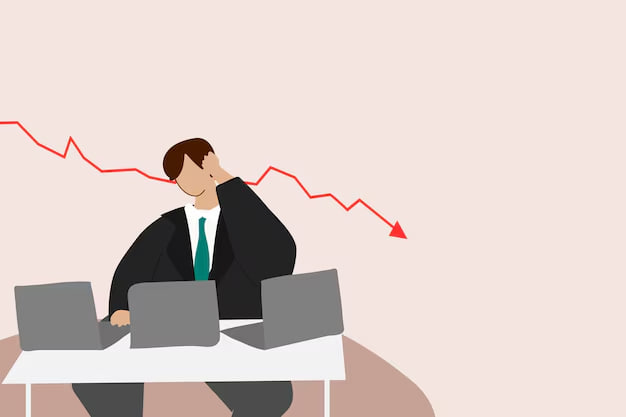Confidence is a key element of success in trading, influencing every aspect of a trader’s decision-making process and trading performance.
Confident traders are better equipped to make informed decisions in the face of uncertainty. They trust their analysis and intuition, allowing them to act decisively even in volatile market conditions.
The ability to bounce back from losses and setbacks is crucial in trading. Confident traders possess the resilience to withstand market fluctuations and maintain their composure during periods of drawdown, which helps build confidence and trading psychology.
They view losses as part of the learning process rather than a reflection of their abilities, allowing them to stay focused on long-term goals.
In this article, we will explore various strategies aimed at bolstering your trading confidence and enhancing your trading skills.
Let’s first understand what makes traders lose confidence in trading.

Understanding the Causes of Lost Confidence
Confidence is not always innate in trading; in fact, many traders experience periods of self-doubt and uncertainty when they start trading.
Making mistakes and experiencing losses early in their trading journey can erode confidence and lead to self-doubt. Trading based on pure luck can lead to false confidence and high risk in the long term.
Emotions play a significant role in trading outcomes, and emotional biases such as fear, greed, and overconfidence can cloud judgment and lead to irrational decision-making.
Most traders feel confident and hit euphoria after a winning trade and hit the fear stage, repeating the same mistakes when profits are gone and stop losses are hit. This tends to have a profound impact and more harm on confidence levels.
Addressing these issues involves seeking education, practicing discipline, and reframing past failures as learning opportunities. By understanding and overcoming these challenges, traders can regain confidence and approach trading with renewed assurance.

How do I achieve confidence in trading?
- Take time to reflect on your strengths, weaknesses, and past experiences in trading. Understanding yourself better can help you identify areas where you may lack confidence and develop strategies to overcome them.
- Set specific, measurable, and achievable goals for your trading journey. Break down larger goals into smaller milestones, and celebrate each accomplishment along the way. Achieving goals can boost confidence and motivation.
- Developing self-confidence as a human requires nurturing a belief in your abilities, embracing authenticity, and fostering resilience in the face of adversity.
- Hire a trading psychology coach, which will help build confidence.
- Trade small amounts, take small risks, use less leverage, and stay disciplined. With a new perspective and thoughtful decisions, one can experience success in a short period of time.
Below are some strategies to implement for developing more confidence.
4 Strategies to Improve Trading Confidence
Develop positive trading habits
Developing proper trading habits is crucial for success in the financial markets. Humans, being prone to mistakes, often fall into common pitfalls when trading.
These mistakes can include emotional decision-making, such as letting fear or greed dictate trading actions, impulsive trading without a well-thought-out plan, and overtrading, where one trades excessively and without discipline.
Additionally, humans may struggle with sticking to a strategy or risk management plan, deviating from it when emotions run high or when faced with unexpected market movements. Despite these challenges, developing habits involves consciously working to overcome these tendencies.
This includes practicing discipline, sticking to a predetermined plan, managing emotions effectively, and continuously learning and adapting to market conditions.
By acknowledging and addressing these human tendencies, traders can gradually develop positive habits that lead to more consistent and successful trading outcomes.
Follow your trading plan.
Following your plan is essential for success in the financial markets. However, humans often struggle to adhere to their plans due to various factors.
Additionally, unforeseen market movements or external influences may cause traders to second-guess their plans and make hasty adjustments. Trading emotionally, breaking the rules for revenge trading when in a losing trade streak, entering at market price when limit orders don’t get filled, and all such scenarios come to mind, which can be avoided by trading with a plan.
Despite these challenges, sticking to your plan is critical for maintaining discipline and achieving long-term success.
By prioritizing consistency and self-control, traders can mitigate the impact of emotional impulses and external distractions, ultimately increasing the likelihood of executing successful trades according to their plan.
Celebrate the winners and learn from the losers.
It’s important to celebrate your winning trades and learn from the losing ones. When you make a successful trade, take a moment to acknowledge your accomplishment and feel good about it.
This positive reinforcement can boost your confidence and motivation. On the other hand, when a trade doesn’t go as planned and you experience a loss, it’s an opportunity to learn and grow.
Take the time to analyze what went wrong, identify any mistakes or weaknesses in your strategy, and use this knowledge to improve your future trades.
By celebrating your wins and learning from your losses, you can become a more skilled and successful trader over time.
Focus on what you can control.
In trading, there are many factors that are out of our hands, like market movements and external events. Instead of worrying about these things, concentrate on the aspects of trading that you can influence, such as your trading strategy, risk management, and emotional response.
By directing your attention and efforts toward what you can control, you can make more informed decisions and better navigate the uncertainties of the market. Be content with what the market offers you instead of trying to force what you want.
This mindset can help you stay focused, confident, and resilient in the face of challenges, ultimately leading to more consistent and successful trading outcomes.
Focus on the process, not the results.
Focus on the process, not the results. In trading, it’s easy to get caught up in the desire for immediate success and focus solely on the outcome of each trade.
For example, when you hit a streak of losing trades, you may lose confidence, thinking, Why is it happening to me?
However, this mindset can lead to emotional highs and lows and cloud your judgment. Instead, shift your focus to the process of trading itself—the strategies you use, the decisions you make, and the discipline you maintain.
Trading is about discipline; it is not decided by one trade or a series of outcomes. Trust the process.
By concentrating on the process, you can make more rational and informed decisions, regardless of whether each trade ends in profit or loss. Over time, this approach can lead to more consistent and sustainable success in trading.
Key Takeaways
Here are some quotes and lessons from prominent traders that serve as key takeaways:
- “The goal of a successful trader is to make the best trades. Money is secondary.” Alexander Elder
- “It’s not whether you’re right or wrong that’s important, but how much money you make when you’re right and how much you lose when you’re wrong.” George Soros
- “Successful trading is about managing risk, not avoiding it.” Larry Hite
- “The key to making money in stocks is not to get scared out of them.” – Peter Lynch
- “The stock market is a device for transferring money from the impatient to the patient.” Warren Buffett
Understanding price and trade outcomes
Understanding price and trade outcomes is fundamental to trading. Price movements reflect the collective actions and beliefs of market participants, making them essential for decision-making.
Whether profitable or not, provide valuable feedback for refining trading strategies and improving decision-making.
Successful traders focus not only on the outcome of individual trades but also on the process and consistency of their approach.
By closely monitoring price action and outcomes, traders can adapt to changing market conditions and increase their chances of long-term success.
Conclusion
Trading with confidence is not just about making successful trades; it’s about developing a mindset and approach that allows you to navigate the ups and downs of the financial markets with resilience and determination.
By focusing on developing positive trading habits, such as discipline, patience, and risk management, you can build the confidence needed to execute your plan effectively.
Additionally, learning from both your winning and losing trades is crucial for continuous improvement and building confidence over time. Remember, trading is a journey, and confidence is a key driver of success along the way.
FAQ
Why is it important to follow my trading plan?
Following your plan helps maintain discipline and consistency in your trading approach, increasing the likelihood of achieving long-term success.
What should I focus on in trading?
Focus on the process of trading rather than just the results. Concentrate on the strategies you use, the decisions you make, and the discipline you maintain, as this approach can lead to more rational and informed trading decisions.
How can I stay confident in trading?
Staying confident in trading involves focusing on what you can control, maintaining a positive mindset, and continuously improving your skills and knowledge as a trader.


